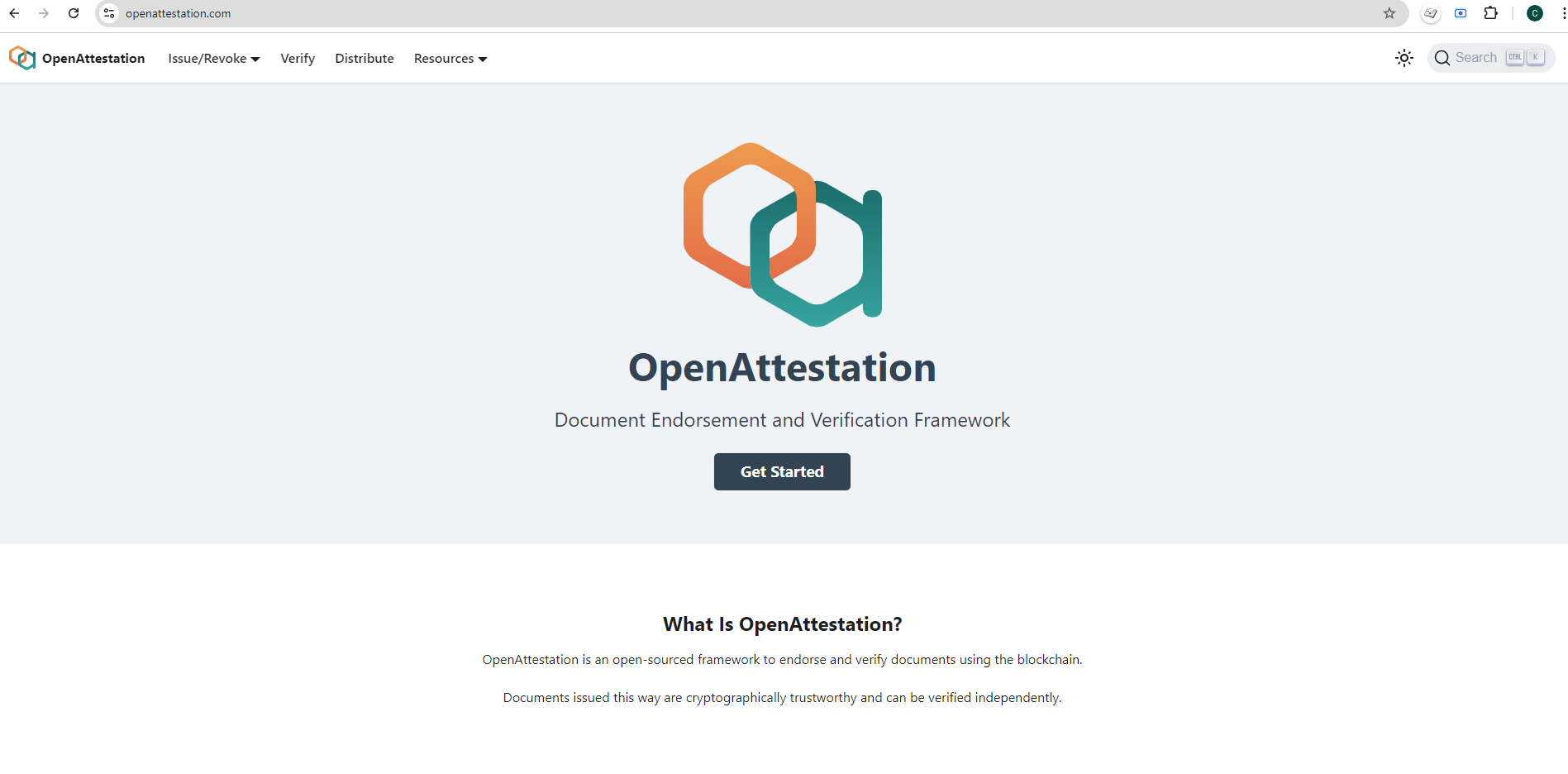
Key Benefits
Document integrity
OpenAttestation guarantees that the content of a document remains unaltered since its creation, enhancing trust in its authenticity.
Issuance verification
OpenAttestation verifies the issuance status of documents, ensuring they are valid and have not been revoked, which boosts confidence in their reliability.
Issuer identity confirmation
OpenAttestation checks and confirms the identity of the document issuer, providing assurance that the document originates from a legitimate source.
Awards & Recognitions
Digital Public Goods Alliance
Listed in the Digital Public Good registry
Observatory of Public Sector Innovation
Published in the Case Study Library
Last updated 07 Mar 2025
Thanks for letting us know that this page is useful for you!
If you've got a moment, please tell us what we did right so that we can do more of it.
Did this page help you? - No
Thanks for letting us know that this page still needs work to be done.
If you've got a moment, please tell us how we can make this page better.
OpenAttestation
A Decentralised Framework That Ensures the Integrity of Digital Documents
